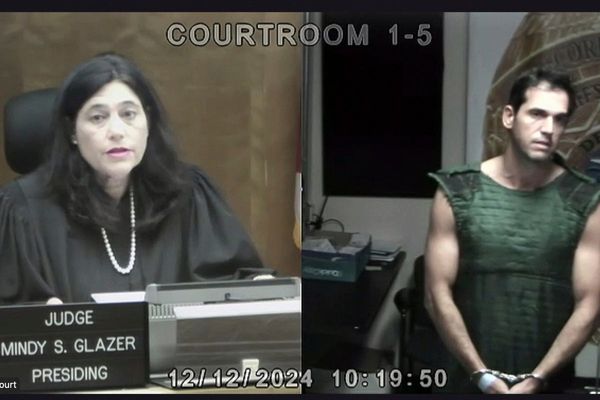
The psychological dangers of online gaming have not been adequately addressed by Australian authorities, as highlighted by the death of a teenage boy in regional Victoria, a coronial investigation has found.
Victorian coroner Paresa Spanos released her findings into Oliver Cronin’s death on Wednesday, saying the tragedy underscored a lack of resources for recognising and treating gaming disorder.
The coroner heard Oliver, 13, was a well-liked student with a large circle of friends who had not suffered depression before his gaming addiction took hold.
In the year before his death in October 2019, the year seven student, who had played games such as Roblox, Minecraft and Clash of Clans over several years, became “obsessed”.
This addiction led to him becoming “irrational and aggressive at times,” Spanos found.
“His parents tried to restrict his access to the gaming devices in an attempt to temper this behaviour, but this led to an escalation in Oliver’s behaviour, escalating to verbal and physical abuse against his parents and extreme temper tantrums.
“In the weeks preceding his death, Oliver was also involved in physical altercations with other students, which resulted in two short suspensions from school.”
At the time of his death, Oliver’s parents had banned him from using technology due to his behaviour. His mother found him unresponsive in his bedroom on the night of 24 October, after he attempted to take his own life, and she called emergency services.
He was taken to the Royal Children’s hospital, but died in the intensive care unit the next morning.
Spanos heard from expert witnesses including a clinical psychologist with expertise in gaming disorders, and said the description of Oliver’s behaviour prior to his death suggested he would have met the World Health Organization’s definition of a gaming disorder, though he was never diagnosed.
The coroner found Oliver “was resistant to help from his parents and professionals by the time they realised the extent of his reliance on gaming and the effects on his behaviours and impact on the family”.
Gaming problems often appear in high school and usually affect males who play role-playing games and who spend time at home alone, the coroner heard. But diagnosis of gaming disorder requires a comprehensive assessment by a psychiatrist or clinical psychologist.
“Based on available information, neither the school nor his parents were sufficiently aware of the risks posed by the extent of his gaming, nor did they recognise that the changes in Oliver’s behaviours were associated with his increased use and reliance on online gaming platforms,” Spanos found.
“It is clear that current understanding the prevention of gaming disorders and the diagnosis and treatment of gaming disorders is neither extensive nor rigorous.”
The prevalence of gaming disorder in Australia is not reliably understood, she found, making caregivers unaware and unsure of the best thing to do to prevent and treat it.
Compared with many other countries, “Australia has not acted as proactively as other nations, and actions and policy are not informed by local information or standardised,” Spanos found.
To prevent similar deaths, Spanos recommended the Office of the eSafety Commissioner raise awareness in adolescents and young adults of the risks of gaming on their psychological wellbeing; promote information about gaming and psychological wellbeing being included in school digital health programs; and promote research into the incidence and prevalence of psychological harms from online gaming.
• In Australia, the crisis support service Lifeline is 13 11 14. Resources for parents can be found at the eSafety Commissioner website. In the UK and Ireland, Samaritans can be contacted on freephone 116 123, or email jo@samaritans.org or jo@samaritans.ie. In the US, the National Suicide Prevention Lifeline is at 800-273-8255 or chat for support. You can also text HOME to 741741 to connect with a crisis text line counsellor. Other international helplines can be found at befrienders.org







